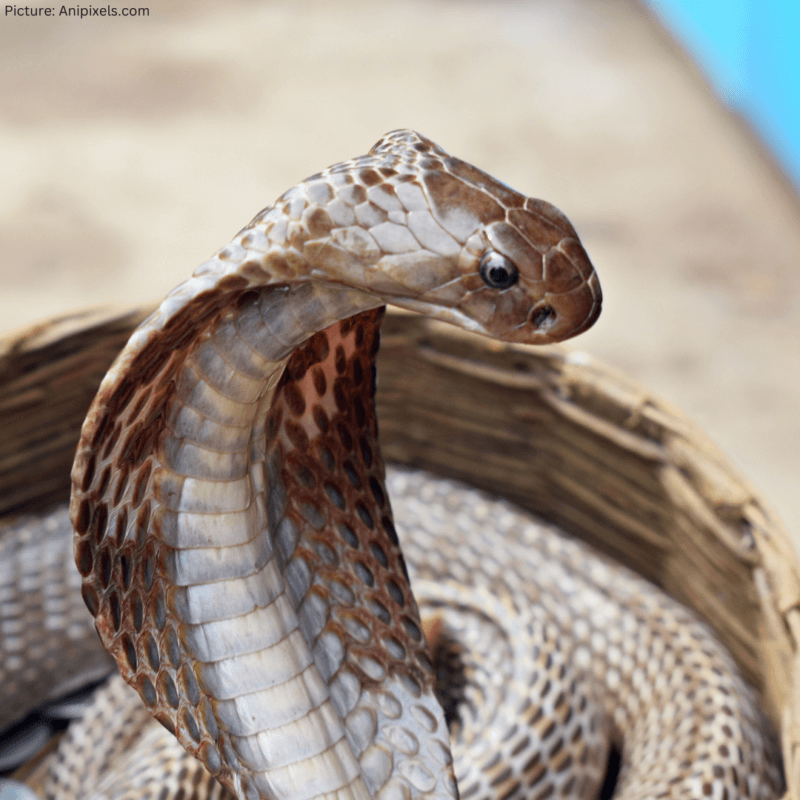Raipur Forest Division Books Snake Charmer, Following PETA India Complaint
After receiving a video from a whistleblower of a cobra being held captive in a small wicker basket by a snake charmer in Shivanand Nagar, Raipur, PETA India worked with local volunteers Prakash Baghel and Tushar Kundey to get a preliminary offence report (POR) registered for the illegal possession, exhibition, and use of a cobra. Cobras are protected under Part C of Schedule I of the Wild Life (Protection) Act (WPA), 1972, and capturing, possessing, or injuring them is a non-bailable offence, punishable by a jail term of at least three years – but which may be extended to seven years – and a fine of at least Rs 25,000.
The Raipur forest division registered the POR against the snake charmer for the above-mentioned offences under sections 39, 43, 49(c), 50, and 58(c) of the WPA, 1972. The snake was confiscated by the forest department and sent for care and rehabilitation at a wildlife conservation facility in Raipur that provides a species-specific environment.
Snakes are trapped and taken from their natural habitats by snake charmers in disregard of the WPA, 1972. Their teeth are often violently yanked out and their venom glands emptied by painfully squeezing the muscles on their head, and in many cases, their mouths are sewn shut, leaving only a small gap into which water or milk can be poured. They’re then taken to cities to be used in cruel performances. The “dance” that snakes perform is actually a fearful reaction to the charmer’s pipe, which the animals perceive as a threat. Captured snakes do not live very long, and their death is slow and painful.
Snakes are fascinating animals who can learn and communicate through body language. Pythons protect their young, and king cobras make nests for their eggs. Rather than exploring lush jungles and swamps and living free as they should, captive snakes are typically relegated to small, dark boxes or tanks where they can’t even stretch out to full length.









